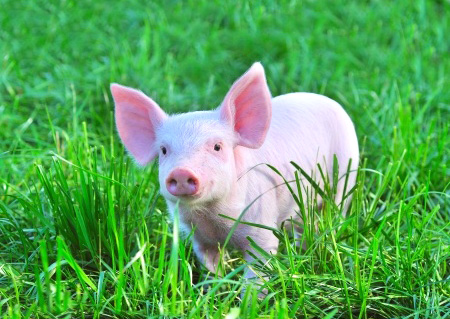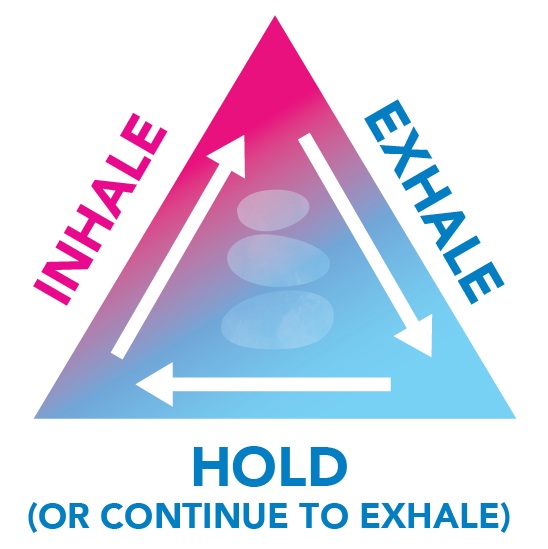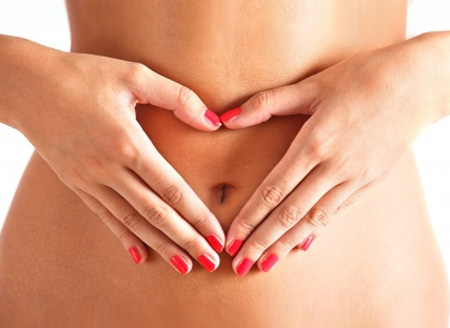Medicine for body, mind and soul
In recent years, conventional science and medicine has been rediscovering what Chinese Medicine has discussed for thousands of years – that the mind and body are inseparable, and that imbalances or changes in one aspect will affect the other. This understanding is reflected in the way that Chinese Medicine uses physical interventions – such as herbal medicine or acupuncture – to create lasting mental and emotional changes. The flipside of this idea is that different emotional or mental states can also directly affect physical health: in its simplest form, we see this manifest in the example of stress shifting our hormone balance, thereby constricting the arteries and elevating the blood pressure. Most of us would have experienced the sensation of a “racing heart” in response to a shock, surprise or stressful situation.
But what about the piglets?
Ok, back to running piglets and the burning question: what do they have in common with anxiety and panic attacks?! Well, in the Jing Gui Yao Lue (Essential Prescriptions from the Golden Cabinet, a 2,000 year old Chinese Medical text) we find a whole chapter on “Running Piglet Qi” – a condition in which a person experiences fluttering or palpitations in their abdomen and chest, as if a little piglet had been let loose inside! The text goes on to say that these sensations rush up to the throat, and the person feels as is they are going to die. The condition then returns to normal. This 2,000 year old text offers a remarkably accurate description of the way some people experience panic attacks, or bouts of anxiety.
So what causes Running Piglet Qi?
Fundamentally, Running Piglet (Ben Tun, in Chinese) signals an imbalance between Yin and Yang in the body. In health, the Fire of the Heart* (Yang) contains and controls the Water of the Kidneys* (Yin). If Heart Fire becomes weak, or if Kidney Water becomes excessive, a state of imbalance arises. The Heart Fire can no longer control the Kidney Water, which begins to rebel upwards, encroaching on the abdomen and chest and causing uncomfortable pulsations or palpitations that can be quite alarming to the sufferer. If the Kidney Water cannot be contained, it will threaten the Heart Fire, resulting in the sense of panic and feeling as if “one is about to die”. As the organ ruled by Fire, the Heart will panic when it feels that it will drown in all that Water!
In modern medical terms, we understand that the heart is the powerhouse that fuels the circulation of blood, providing warmth and nourishment that the entire body relies on. The kidneys filter blood and play an important role in fluid metabolism, impacting fluid retention and urinary output. The adrenal glands, which sit on top of the kidneys, govern many vital processes in the body and also have an impact mental / emotional states. The heart and kidneys, and their related systems, are in close communication, and their balance is essential to health.
How can Heart Fire and Kidney Water become unbalanced?
As always in Chinese Medicine, there are many factors that can contribute to an imbalanced state, and the exact causes and disease expressions will vary from individual to individual. However, common causes of weak Heart Fire can be:
- stress (which “burns” up the Heart, causing it to beat faster and weaken)
- fright or shock (which “scatters” the Heart’s energy)
- overwork, whether physical or mental
- excessive sweating (which forces the heart to work harder, thereby weakening it)
- excessive exposure to cold (the Heart is Fire and likes it hot!)
- insufficient sleep, rest / relaxation and nutrition (the Heart Fire needs fuel to burn!)
- too much over-excitement or over-stimulation
- congenital or constitutional factors
Many of these factors will affect the Kidneys as well, leading to impaired fluid management and excess Water. In addition to these triggers, other causes of excessive Kidney Water can be:
- poor digestion (leading to the accumulation of undigested matter in the digestive tract, and inflammation)
- too many greasy, cold, sweet or raw foods (see above)
- excessive sex (sorry people, but that’s what the ancient book says!)
From these lists above, we can see that many of these factors are highly prevalent in our modern lives: long, stressful days at the office, followed by an intense workout to “burn off” stress, then a quick convenience meal on the run, more work at home (or facebook/twitter multitasking in front of the TV), before finally collapsing into bed way past our bedtimes (often only to have our mind race and refuse to settle into sleep!). And indeed, many clients that we see in the clinic are suffering from various manifestations of anxiety and stress.
So, what can be done to calm the running piglets?
If the imbalance of Heart Fire and Kidney Water is mild, some simple lifestyle and dietary changes may be enough to restore health and harmony. These may include:
- scheduling downtime or quiet time throughout your day, to ease stress.
- taking time out from social media / TV in the evenings, to reduce mental stimulus after a hectic day.
- choosing gentle restorative exercise, such as Yin Yoga class or a walk, when things are stress.
- eating foods which are easy to digest and support the body (stir-fries, warm salads and stews are already cooked and at body temperature, reducing the effort required and making it easier for your body to nourish itself – more on this in coming posts).
- going to bed at 9.30pm: give yourself half an hour to wind down by meditating, reading a book or deep-breathing, before falling asleep.
- striving for balance between work and relaxation.
How herbal medicine & acupuncture help
If the imbalance of Heart Fire and Kidney Water is more severe and is already leading to a sensation of running piglets, herbal medicine and acupuncture will be required to strengthen the Heart Fire (we often use cinnamon for this) and to drain out the excess Kidney Water (often using warming herbs like ginger, or herbs that promote urination). Chinese Medicine has a range of herbal formulas (including one called “Running Piglet Soup” – but don’t let the name mislead you, it’s all vegan!) that can address anxiety and panic attacks: your practitioner will choose the correct one for your condition and unique symptoms. Meanwhile, modern clinical trials continue to confirm the power of acupuncture in promoting relaxation to treat stress, anxiety and panic disorders.
Peace to your piglets!
* The terms “Heart” and “Kidneys” are capitalised here to differentiate them from their Western Medicine counterparts. The term “Heart” does not refer to the heart organ alone, but instead encompasses circulatory, mental and emotional components. Similarly, the “Kidneys” refer to more than just their anatomical organ equivalent. This will be covered in more detail in future blog posts!






